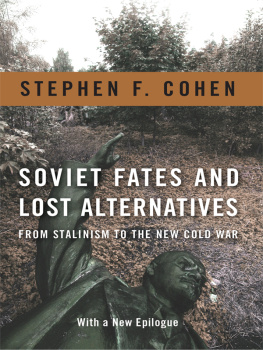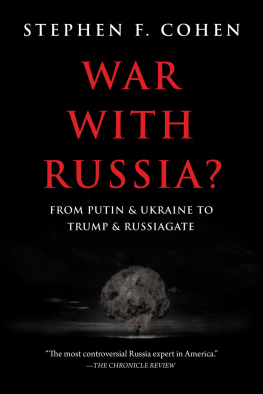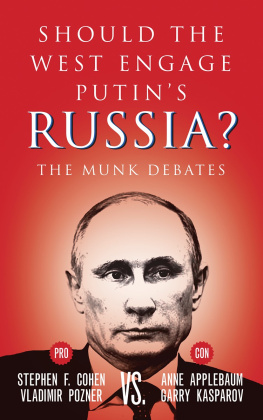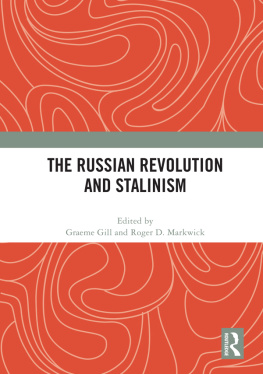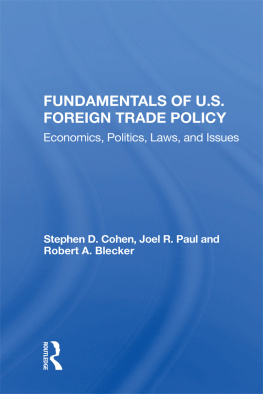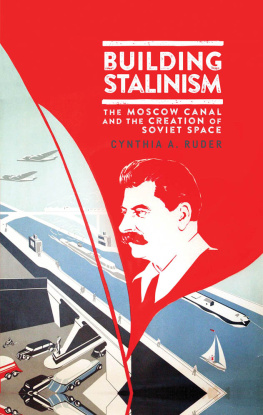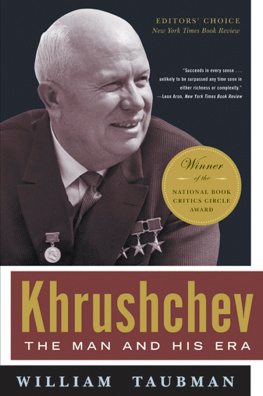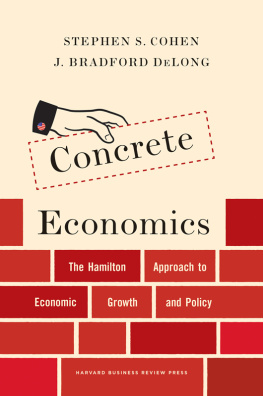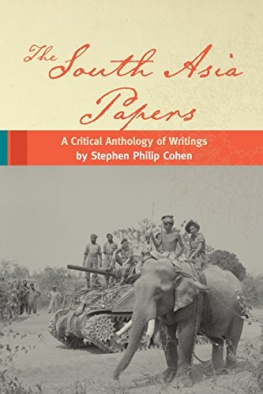Stephen F. Cohen - Soviet Fates and Lost Alternatives: From Stalinism to the New Cold War
Here you can read online Stephen F. Cohen - Soviet Fates and Lost Alternatives: From Stalinism to the New Cold War full text of the book (entire story) in english for free. Download pdf and epub, get meaning, cover and reviews about this ebook. year: 2011, publisher: Columbia University Press, genre: Politics. Description of the work, (preface) as well as reviews are available. Best literature library LitArk.com created for fans of good reading and offers a wide selection of genres:
Romance novel
Science fiction
Adventure
Detective
Science
History
Home and family
Prose
Art
Politics
Computer
Non-fiction
Religion
Business
Children
Humor
Choose a favorite category and find really read worthwhile books. Enjoy immersion in the world of imagination, feel the emotions of the characters or learn something new for yourself, make an fascinating discovery.
- Book:Soviet Fates and Lost Alternatives: From Stalinism to the New Cold War
- Author:
- Publisher:Columbia University Press
- Genre:
- Year:2011
- Rating:4 / 5
- Favourites:Add to favourites
- Your mark:
- 80
- 1
- 2
- 3
- 4
- 5
Soviet Fates and Lost Alternatives: From Stalinism to the New Cold War: summary, description and annotation
We offer to read an annotation, description, summary or preface (depends on what the author of the book "Soviet Fates and Lost Alternatives: From Stalinism to the New Cold War" wrote himself). If you haven't found the necessary information about the book — write in the comments, we will try to find it.
blank
(9/14/09)Soviet Fates and Lost Alternatives: From Stalinism to the New Cold War — read online for free the complete book (whole text) full work
Below is the text of the book, divided by pages. System saving the place of the last page read, allows you to conveniently read the book "Soviet Fates and Lost Alternatives: From Stalinism to the New Cold War" online for free, without having to search again every time where you left off. Put a bookmark, and you can go to the page where you finished reading at any time.
Font size:
Interval:
Bookmark:
SOVIET FATES AND LOST ALTERNATIVES
SOVIET FATES AND LOST ALTERNATIVES
FROM STALINISM TO THE NEW COLD WAR

STEPHEN F. COHEN
COLUMBIA UNIVERSITY PRESS New York

COLUMBIA UNIVERSITY PRESS
PUBLISHERS SINCE 1893
NEW YORK CHICHESTER, WEST SUSSEX
cup.columbia.edu
Copyright 2009 Columbia University Press
Paperback edition, 2011
Epilogue 2011 Columbia University Press
All rights reserved
E-ISBN 978-0-231-52042-3
Library of Congress Cataloging-in-Publication Data
Cohen, Stephen F.
Soviet fates and lost alternatives : from Stalinism to the new Cold War / Stephen F. Cohen.
p. cm.
Includes bibliographical references and index.
ISBN 978-0-231-14896-2 (cloth : alk. paper)ISBN 978-0-231-14897-9 (pbk : alk. paper)
ISBN 978-0-231-52042-3 (e-book)
1. Soviet UnionHistory1925 1953. 2. Soviet UnionHistory19531985. 3. Soviet UnionHistory19851991. 4. Soviet UnionPolitics and government. 5. Concentration camp inmatesSoviet Union. 6. Cold War. 7. Gorbachev, Mikhail Sergeevich, 1931Political and social views. 8. Post communismRussia (Federation) 9. Russia (Federation)Foreign relationsUnited States. 10. United StatesForeign relationsRussia (Federation) I. Title.
DK266.c587 2009
947.084dc22
2009000659
A Columbia University Press E-book.
CUP would be pleased to hear about your reading experience with this e-book at .
References to Internet Web sites (URLs) were accurate at the time of writing. Neither the author nor Columbia University Press is responsible for URLs that may have expired or changed since the manuscript was prepared.
FOR NIKA
MAY HER ALTERNATIVES ALWAYS BE GOOD AND HER FATE HAPPY
CONTENTS |  |
History is not determined by fate. There is always an alternative. MIKHAIL GORBACHEV Most of our history is the lessons of missed opportunities. YEGOR YAKOVLEV, GORBACHEV-ERA REFORMER |  |
MANY writers, perhaps historians and novelists more than others, find themselves returning again and again to some big theme that captivated them early in life. For me, it has been political alternatives in history, roads taken and not taken, in Russia in particular. Though the chapters of this book treat diverse subjects and were researched and written over many years, several appearing in full or in part in other places, they do not stray far from that theme.
In the beginning, it had nothing to do with Russia. Growing up in a segregated small town in Kentucky, in the 1940s and 1950s, I accepted the world around me, as children do, as perfectly normal. But at the age of fifteen or sixteen, events in my life caused me, as Corinthians instructs, to put away childish things. I began to understand segregation was a terrible injustice and to wonder if there had been an alternativethough I did not yet use the wordin Kentuckys history. After all, I knew my state had produced the Civil War presidents both of the Union and the Confederacy, Lincoln and Jefferson Davis.
A few years later, when I began studying Soviet Russia as an undergraduate at Indiana University, Robert C. Tucker, the professor who became my mentorand eventually my friend and colleague at Princetonpressed me to settle on a more specific interest in the country. When I could not, he asked if I had any special historical or political interests apart from Russia. Still not far removed from home, I replied, Whether or not there had been an alternative to segregation in Kentuckys history. Tucker then sent me on my intellectual way: Good. The question of alternatives is a very big and understudied issue in Soviet history. So it became, and has remained, for me.
I began with the faction in the Soviet leadership, headed by Nikolai Bukharin, who opposed Stalin and the emergence of Stalinism at the nations fateful turning point in 1928 and 1929. This led to my biography of Bukharin and, many years later, to the first chapter of this book. Having entered the field during the high point of Nikita Khrushchevs anti-Stalinist reforms, I was then drawn to the alternative for the Soviet future his policies had represented in the 1960s. That interest eventually led me to the subject of my second chapter, the return of Stalins surviving victims after his death.
Khrushchevs overthrow, in 1964, reaffirmed the belief of many of my colleagues that fundamental reforms in the rigidly authoritarian Soviet system were impossible, partly because they saw no alternative historical experiences or traditions to inspire or sustain them. Seeing a viable anti-Stalinist tradition connecting Bukharins opposition in the 1920s and Khrushchevs political revivalism thirty years later, I disagreed. During the next two decades, my main project was identifying proreform forces and their ideas inside the murky bureaucratic realm of the ruling Communist Party.
As a result, I was not surprised by the emergence of Mikhail Gorbachev as the Soviet leader in 1985. Historical and political alternatives were at the center of his increasingly radical reforms, from retrieving what he and his supporters believed were lost ideas from the Soviet 1920s to the first multicandidate elections in 1989. (Gorbachev was, as I will explain later on, a kind of heretic, and heretics by nature believe above all in alternatives.) Those historic developments are the focus and context of chapters 3 through 6, especially the two that argue the Soviet Union was reformable and that there had been an alternative to its breakup in 1991.
.
Here I should explain briefly what I mean by historical alternatives. These are not the imaginary or hypothetical constructs of what-if, counterfactual history, though that is a legitimate intellectual exercise, or what some writers dismiss as a non-existent subjunctive in history. I am interested in alternative possibilities that actually existed at turning points in Soviet and post-Soviet history, ones grounded in realities of the time, represented by leaders, and with enough political support to have had a chance of being realized. We may disagree as to their chances but not that real people foughtand often diedfor them.
No what-ifs or other fictions are needed to understand, for example, that the Bukharinist opposition to Stalins political and economic policies represented a different Soviet road forward, one with widespread support in the Communist Party and in society. Khrushchevs reforms, which were embraced by young people, members of the intelligentsia, and even significant numbers of Party and state officials, had the potential for more far-reaching change in the Soviet system twenty years before it was actually initiated, when some observers thought it was too late. Gorbachevs call for a full-scale Soviet reformation had broad elite and popular support, and although his personal popularity collapsed under the weight of the alternative he pursued, Boris Yeltsin initially claimed to represent the same cause.
One reason this book may not be well received by many of my colleagues is that they never believed there were any real alternatives in the seventy-four-year Soviet experience. During the forty-year Cold War, when the academic field was formed, they saw a straight-line history predetermined by one or more ineluctable factorsthe ruling Partys organization, its ideology, or Russias bleak traditions.
Next pageFont size:
Interval:
Bookmark:
Similar books «Soviet Fates and Lost Alternatives: From Stalinism to the New Cold War»
Look at similar books to Soviet Fates and Lost Alternatives: From Stalinism to the New Cold War. We have selected literature similar in name and meaning in the hope of providing readers with more options to find new, interesting, not yet read works.
Discussion, reviews of the book Soviet Fates and Lost Alternatives: From Stalinism to the New Cold War and just readers' own opinions. Leave your comments, write what you think about the work, its meaning or the main characters. Specify what exactly you liked and what you didn't like, and why you think so.

